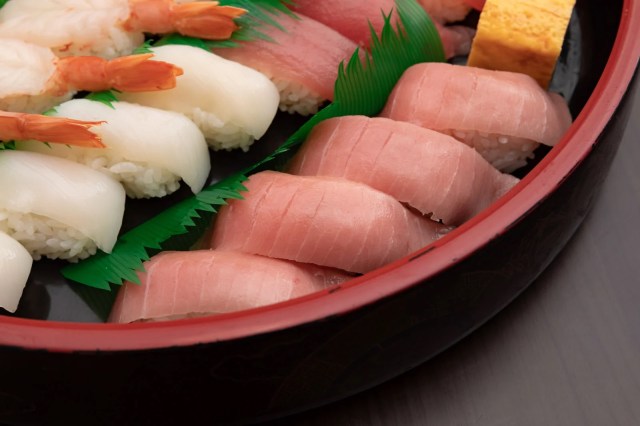
The legendary creator of Lone Wolf and Cub has no patience for such affronts to fine dining.
Despite being 79 years old, Kazuo Koike, author of iconic and groundbreaking samurai manga Lone Wolf and Cub, is an active Twitter user. And while you might expect the man who once declared that being an otaku is the secret to happiness to be all about following your personal preferences, apparently his accepting attitude doesn’t extend to the realm of Japanese cuisine.
Koike recently relayed the following story, which transpired during his trip to a sushi restaurant.
“I went out to eat sushi the other day. There was a female customer in the restaurant, who, in the middle of her meal, informed the staff ‘I’m on a carb-free diet, so please hold the rice.’”
“The chef and the other customers froze in place. In business, you have to please your customers, but this was just too much. In response to her request, the chef quietly said ‘Please leave the restaurant.’ You’ve got to show respect to people who make things, after all.”
But Koike wasn’t done with his scathing review of the woman’s dining etiquette.
“It wasn’t a cheap sushi restaurant (though I’d have felt the same if she’d done that in a cheap one), and she was a nicely dressed, elderly woman. I was, just, really disappointed in her actions. It was a real-world example of how you don’t necessarily become an adult just because you get older. You can’t judge whether someone is an adult or not just by their age. You have to judge by the kind of person they are, not how old they are.”
The woman’s request actually is somewhat odd. Sushi, linguistically, refers to vinegared rice; slices of raw fish without any rice would be “sashimi,” so this is sort of like going into Subway and asking for a pile of cold cuts and veggies instead of a sandwich.
Another point worth remembering is that many restaurants in Japan specialize in a single dish, so if an establishment bills itself as a “sushi restaurant,” you should be prepared for the fact that sushi (rice included) is going to be an integral part of the meal.
Because of this, some online commenters agreed with Koike’s extremely negative sentiments.
“That kind of old bag shouldn’t be allowed out in public.”
“Not giving her anything to eat is the best way for her to lose weight, so I think they were very considerate.”
“I’d have kicked her out too.”
On the other hand, more than a few commenters offered dissenting opinions, citing the less pretentious origins of sushi, ease with which the request could have been accommodated, and even the thoughtfulness the woman showed.
“Sushi was basically fast food in the Edo period. When did it get such a high-and-mighty image?”
“Would he have reacted differently if she’d politely asked for sashimi?”
“Seriously, just give her some sashimi.”
“There’s nothing wrong with asking if they can do that. Some restaurants are happy to.”
“What she did was better than eating just the fish and leaving the rice on her plate.”
“As long as she’s willing to pay the normal price, what’s the problem?”
The last remark is pretty compelling from an economic standpoint, seeing as how preparing sashimi would entail less work and require fewer ingredients than the standard sushi. Still, if you’re dining in the sort of exclusive eateries that cater to clientele of Koike’s professional stature and financial means, it might be a good idea to make sure you’re OK with what’s on the regular menu.
Source: Jin
Top image: Pakutaso